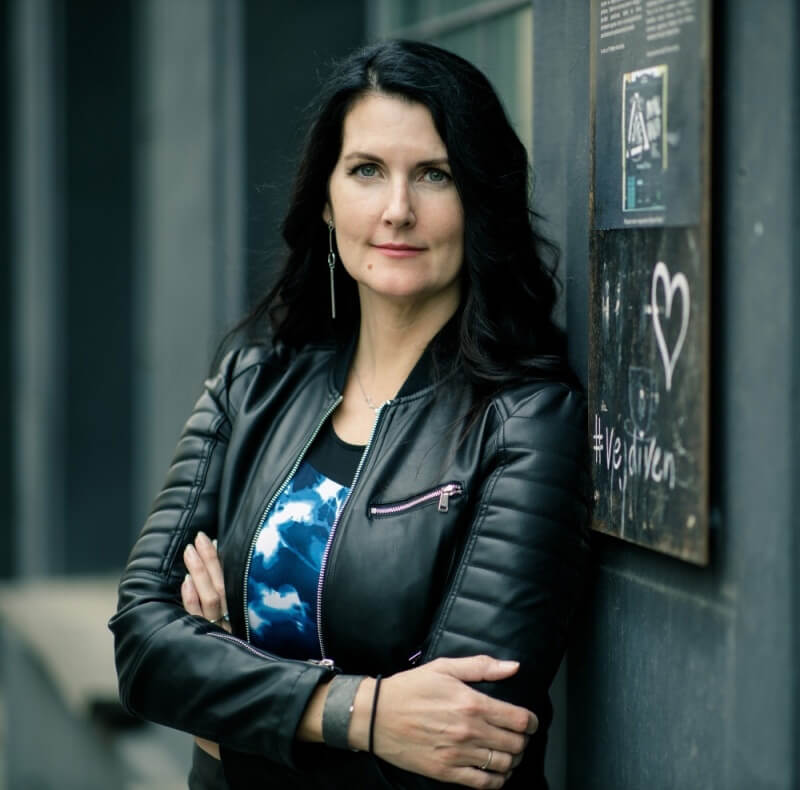The latest candidate in our series of Q&As with influential women in the technology business in Canada is Alexandra Moxin, Vice President of Product, LQwD Fintech (pronounced “liquid), the first publicly traded Bitcoin company that supports the Bitcoin Lightning Network.
Name: Alexandra Moxin
Job Title: Vice President of Product, LQwD Fintech
Years in the Industry: 14 Years
The Quote That Most Inspires You: “If you don’t believe it or don’t get it, I don’t have the time to try to convince you, sorry.” Satoshi Nakamoto (source); “Running Bitcoin” Hal Finney (source)
What drew you to a career in the consumer and/or business technology industry?
I have always been independent and I always had to forge my own path. I enjoy a challenge and solving complex problems – I always have. Technology and business are highly nuanced, diverse fields. There isn’t really a playbook anymore. You have to be enterprising, not afraid to take calculated risks, and be willing to take in and synthesize large amounts of data from various sources. Each company, each problem you’re solving, each opportunity is different – yet understanding your strengths and what you bring to the table is something entirely under your control.
I’m lucky, in that I’ve found a great opportunity to grow and contribute with LQwD, but I put in the time to develop my expertise, intuition, communication skills, and problem-solving abilities, and have dedicated my time keeping on top of trends in this space. So, was that luck, or was it instead good strategic development, planning, and timing?
Have you encountered any roadblocks along the way that were related to your gender?
Maybe, but none that I’ve been aware of. The Bitcoin space tends to be very welcoming to anyone who is willing to be humble and who takes their time to learn the technology and nuances of this space. Ideas are welcomed, egos less so. There are so many incredibly talented women in this space, many in leadership positions and on boards. I would argue this is the most egalitarian space I’ve ever worked in, and my coworkers, colleagues and contacts have set the bar very high.
What unique characteristics or perspective do you feel you bring to your organization as a woman?
Women are natural connectors, we tend to play the long game, and I’ve noticed many of these types of personalities are driving the industry forward.

Technology is historically a male-dominated industry, yet the use of tech is fully embraced by women, and many studies even suggest that females are the primary buyers of tech in the home. What do you feel the technology industry needs to attract more women, particularly into high-level positions?
I’m not really sure there’s much of a difference in terms of recruiting talent. Each person’s individual needs are going to be different based on what matters to them and what their priorities are. I think the best we can do is create an environment that encourages talent to develop and a workspace where an individual can meaningfully contribute.
If you had to sum up what it is like being a woman in this male-dominated technology industry in just a few words, what would you say?
I have found the best strategy is to focus on what you’re building or trying to solve. At the end of the day, we’re all individuals, with diverse perspectives – and this is a good thing. When the conversation moves exclusively to gender or culture centric thinking, you really miss a key objective: actually doing the interesting and complex work your team should be focused on.
Are there other women in the tech industry who inspire you?
100%. Elizabeth Stark of Lightning Labs is kind of the alpha in terms of leadership in the Lightning Network space. Lightning developers like D++ of Swan Bitcoin and PlebNet, Lisa Neigut at Blockstream, and Selene Jin, Director of UX, also at Blockstream. Katie Ananina, CEO of Plan B Passports is a powerhouse in terms of what she’s accomplished so early on in her career. Mir Liponi, Lina Seiche, and Molly Spiers of the Satoshe Podcast; Magdalena Gronowska, Vice President of Business Development at Coinkite; Ghazaleh Barman Director of Finance at Bitcoin mining company, Riot Blockchain.
What inspires me is someone who is a strong leader and able to achieve maximum impact with minimal ego. Someone who can rally a team and is willing to give people autonomy and space to develop. And most important, someone who knows their strengths, when to delegate, and who won’t push others to do anything they themselves wouldn’t do.
What are some of the misconceptions/myths about women working in the technology space that you’d like to dispel?
In some industries, it’s still a boys’ club. However, that’s changing. I really do think the best person should get the opportunity – and that decision should never be driven by a quota. In the emerging tech space, it seems like there are, generally, more women in leadership. I think individuals who hold contrary opinions and approach things differently help break through the echo chamber of groupthink that is so pervasive in some of the tech monopolies we see today.
What’s one thing you wish was done differently in the industry, and why?
I had an idea for a project early on that I never developed because I chose security over risk. Turns out, that several others had similar ideas, but chose to bet on themselves, and raised companies valued at over $850 million combined. There’s never a shortage of ideas but very few people are willing to charge forward and execute on their vision.
Finding that balance between risk and security is a difficult one, but if you think of something and you just can’t get it out of your mind – worry less about the how and give it all you’ve got. The worst thing isn’t failing, it’s regret.
Are you optimistic for the future in general and for the industry?
Yes. Now that we have Bitcoin, there is a chance for individuals to experience hard money for the first time – while being able to express their views without fear of exclusion by legacy financial institutions.
The digital landscape has a long way to go, and, while I’m very concerned with the direction we’re going in terms of censorship, there is an equal amount of development going into privacy-preserving technology that respects an individual’s human rights.
I’d like to close with a message for those builders, who tirelessly persist and push the boundaries beyond what is currently possible: The future is as yet unwritten. Onward.









